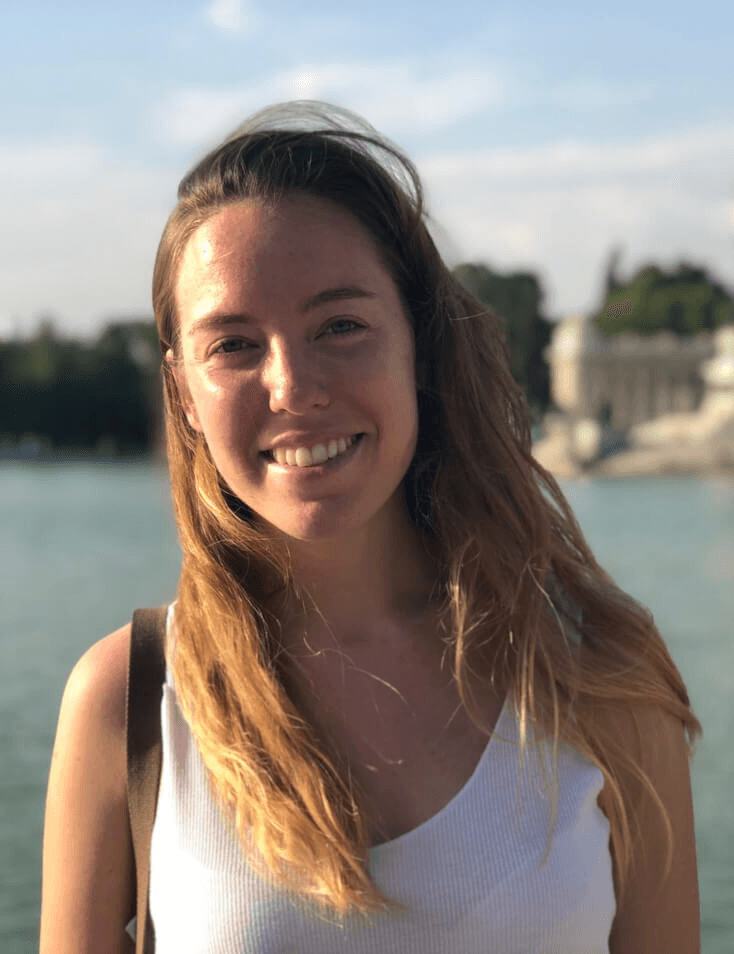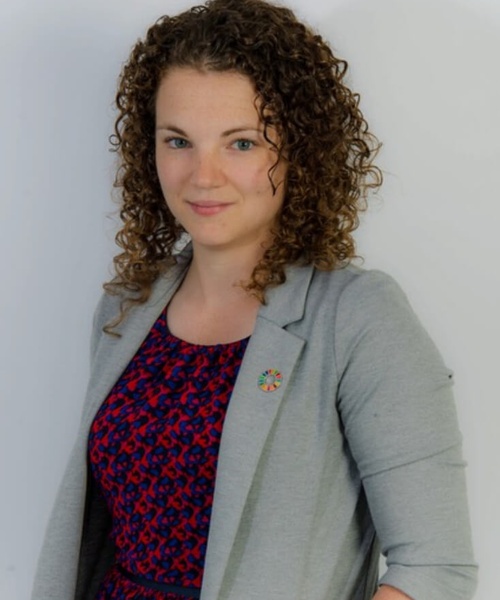
Emily Kathleen Hatt
I come from a small island in Newfoundland, Canada, which is in the North Atlantic. I would describe myself as calm, easy going and quite quiet at first, but my friends say that I’m reliable and have a dry sense of humor! I’m extremely passionate about international development, and even within this field, there are many varied areas that interest and excite me, like water and food security, education and gender equality. The key component that links these areas together for me is wanting to help people and making a difference, and to do this, my long-term goal is to apply my background in engineering to international development and use it to build a career that achieves these objectives.
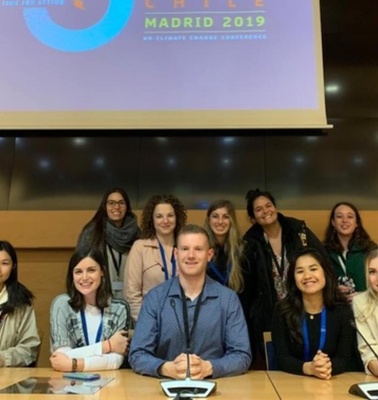
“The highlight of the entire [degree] experience was getting to know my classmates. Having the ability to laugh with them, learn from them and face a pandemic together is something I'll never forget.”
Before enrolling in the Master in International Development, Emily was working as a professional engineer. She has a Bachelor in Process Engineering and has worked on oil field and mining operations across Canada, USA, Mexico and Russia. Within these projects, she has held operational roles and carried out design work, focusing on process optimization and change management, but was always drawn to the problem-solving side of the field. A few years into her career, Emily realized that she was much more passionate about global problems, like the ones explored in international development, and she wanted these to be her focus. This motivated her to apply to IE University, quit her full-time engineering role and move to Spain!
While Emily feels that she learned a lot throughout the master’s program, her highlight was getting to know her classmates. Laughing with them, learning from them and facing a pandemic side by side was an unforgettable experience for her, and the last year has especially highlighted the importance of kindness and empathy in leadership. These qualities, in Emily’s view, are essential for our world leaders, and she thinks that her classmates demonstrated them fully in supporting one another during the pandemic, while they were scattered across the globe.
Emily cites a unique resource of the IE Master in International Development program as being its partnership with the United Nations System Staff College (UNSSC). This allowed students to benefit from both professors and practitioners, and provided them with diverse perspectives and experiences. Furthermore, through this agreement, Emily and her classmates became volunteers and participated in The UN Climate Change Conference COP25 in Madrid, which was a unique experience!
For future students, Emily wanted to highlight the wide array of scholarships that IE University offers, as she herself received the Women in STEM scholarship. Moreover, she found opportunities to get involved in various leadership positions through the numerous clubs on campus, as well as opportunities in class. During her degree, Emily became one of two class representatives for the Master in International Development student cohort, listening to the concerns of students and communicating these to the program management team. This is a role that Emily valued greatly, as she hadn’t come across it in other university settings.
“The problems the world is facing, the problems that you study in international development, were the ones I was passionate about and wanted to focus on.”
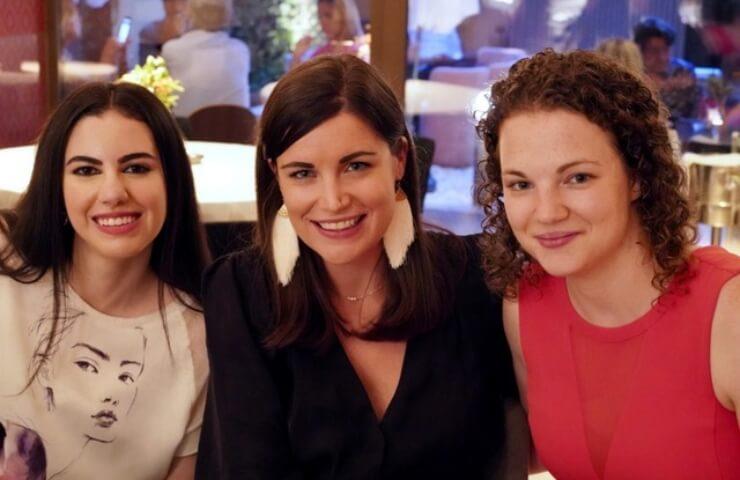
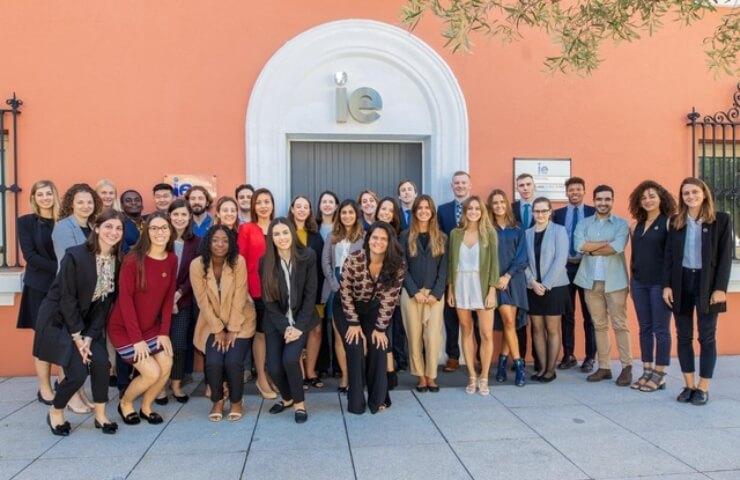
Emily applied to the UNSSC fellowship program because she saw it as an intriguing opportunity to gain experience in the UN system through learning about various projects and the training that agencies complete. She felt that this would help her to gain a sense of both the big picture and the more intricate details of this work. Education has also always been a great interest of hers, and seeing how small training adjustments through educational programs have a huge impact on the whole system proved to be a fascinating experience.
Emily has had an excellent experience as a fellow so far. She has learned a lot about the UN system as a whole, the challenges faced by the various agencies in different countries and the learning and training initiatives that are currently taking place. With regards to her day-to-day routine, this depends on which project she is working on. Currently, her role as a fellow partly consists of providing technical support for webinar sessions, running Zoom sessions, setting up breakout rooms and answering technical questions from participants. She is also involved in the beginning stages of projects, assisting in writing and preparing proposals and budgets, as well as offering support in a project management capacity and helping to design a new training course.
When asked for advice for future fellowship candidates, Emily said that the most important thing was to just go for it. If someone is passionate about learning, training and education, there are many subjects covered across various programs and lots of possible ways to get involved. Currently, Emily is working as part of the UNSSC Knowledge Center for Leadership and Management (KCLM) team, where she is involved in programs on topics such as change management, agile teams, navigating uncertainty and resilience. She has also had opportunities to learn about instructional design and different methods of implementing various online learning platforms.
For Emily, there are many areas in which her experience at IE University has benefitted her current fellowship at the UNSSC. The experience of completing a master’s program during a pandemic and switching to online classes has aided her in assisting online learners, and in the staff college, she has to juggle several projects simultaneously, which feels similar to juggling the requirements of her master’s program modules.
Moreover, certain courses that Emily completed as part of her time at IE University have directly helped her experience with the KCLM team. One example is the course on Adaptive Leadership and Community Empowerment, as the skills, readings and projects that it entailed have proved a valuable resource. These have given her a reference point for KCLM programs on leadership and management, especially change management. Additionally, Emily really enjoyed her Results Based Management course, as this was very helpful in analyzing the indicators and questions needed to soundly evaluate completed projects. The skills acquired through this course can be applied to any type of project, which is vital for Emily’s desired line of work.
